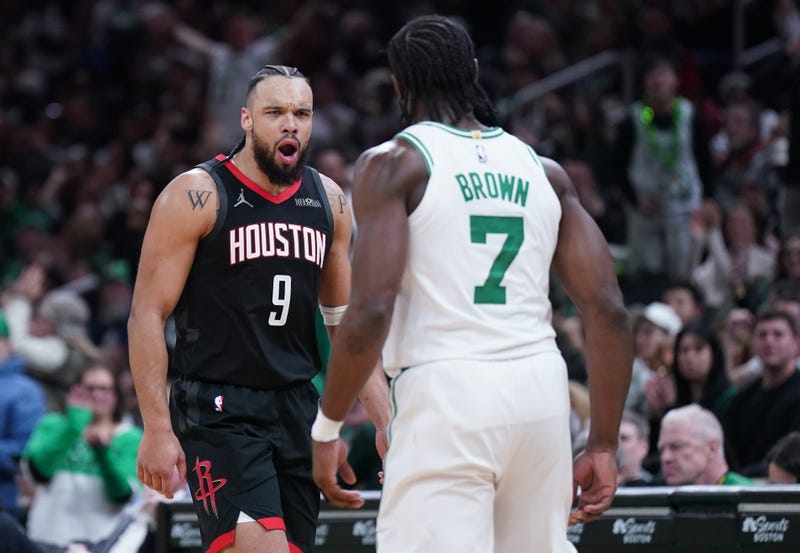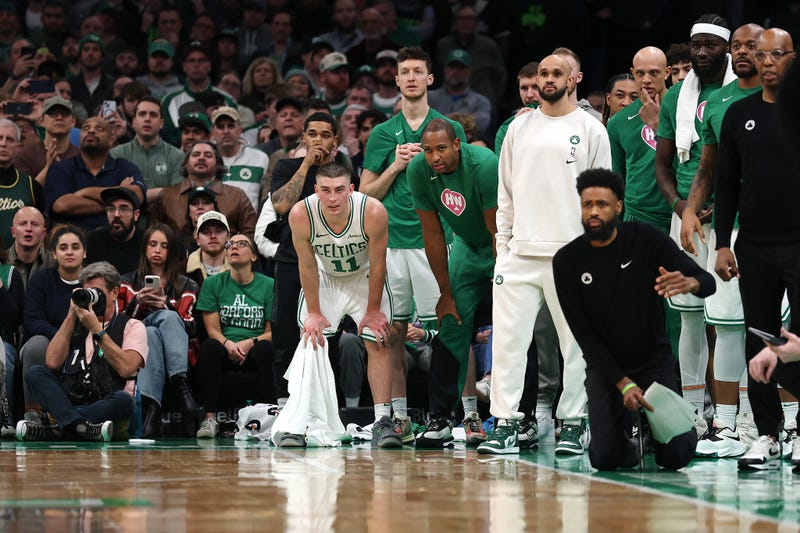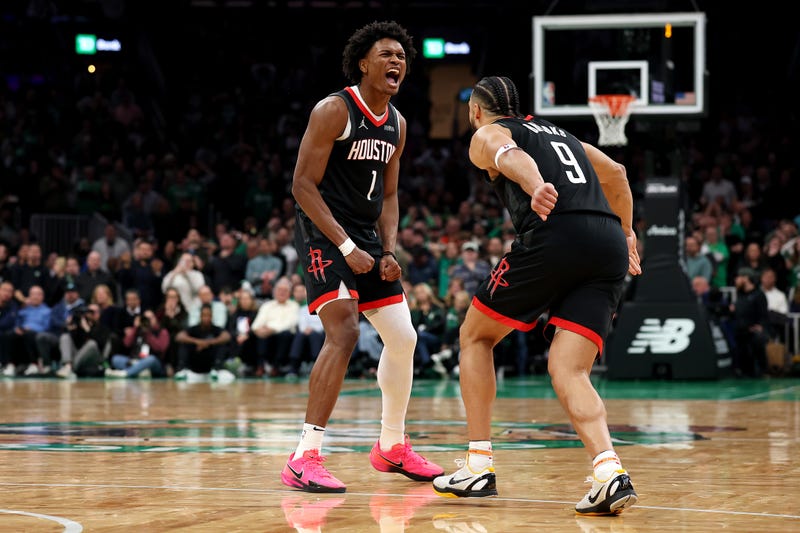You can point to the flukiness of Dillon Brooks’ career-high 36 points, including 10 three-pointers—the most ever by an opposing player in Boston to leave victorious—and a feat that tied the Rockets’ franchise record. Brooks shot 10-of-15 (66.7%) from downtown, despite entering the night with a 31.3% mark from deep in January.
You can also look to Amen Thompson, who, as great as he’s been, had never recorded a 30-point game. He finished with a career-high 33 points on 64.8% shooting, with he and Brooks becoming the first pair of teammates to score at least 33 points apiece since Jamal Murray and Nikola Jokic did it over a year ago.
And, of course, you can account for the fact the Celtics were down three rotation players—Derrick White, Al Horford, and Sam Hauser—on the first game back from a tough west coast road trip, one of the most challenging schedule humps a team faces.
The Celtics fought until the end against a young, tough Houston Rockets team, which entered the night having won eight of their last 10, including two victories over the Cleveland Cavaliers. Ultimately, Boston fell short, with the Rockets improving to 31-14, strengthening their hold on second place in the Western Conference and surpassing the Celtics for the third-best record in the NBA.

Regardless of the potential excuses, the conversation will focus on the final two defensive possessions, where miscommunication, confusion, and a lack of connectivity led to a wide-open Alperen Sengun dunk to take the lead with 10.1 seconds left, followed by Thompson’s game-winning floater with 0.7 seconds remaining after Luke Kornet and Jaylen Brown unexpectedly switched at the last second.
“Those last two plays were on me. Those were my fault,” head coach Joe Mazzulla said. “It didn’t put us in the best matchups. I saw the play that they were trying to run. I tried to change the matchups. They put our guys in a tough spot. So that’s a tough one because I thought our guys did everything to win the game, and they put us in a position to win it, and I didn’t help them at the end. So both those plays, 100 percent on me.”
Mazzulla can take the blame, but the reality is the Celtics shouldn’t have found themselves in that position in the first place. Boston held a 12-point lead with 8:38 remaining in the fourth quarter before collapsing, as Houston outscored them 25-11 to close out the game. Houston hit nine of its 15 shots (60%) during that stretch, including 2-of-4 (50%) from three. All nine of their makes were assisted. In contrast, Boston made just four of its 14 attempts (28.6%) and only 1-of-7 (14.3%) from beyond the arc.
As a result, the Celtics blew their ninth fourth-quarter lead of the season, matching their total from a year ago. Seven of those nine losses have come at home.

Independent of the miscommunication in the final moments on Monday night, fourth-quarter struggles have been a persistent issue for the Celtics this season. In their 15 losses, they rank dead last in field goal percentage (39.7%) and net rating (-27.2), 26th in three-point percentage (28.6%), 22nd in offensive rating (103.8), and 29th in defensive rating (131.0). Opponents are shooting a blistering 53.4% against the Celtics in the fourth quarter of their losses (second-best in the league) and 46.7% from three, also second-best.
“We gotta be better down the stretch and execute,” Jaylen Brown said. “Tonight wasn’t the best example of that. It’s something we gotta look at, for sure.”
Offensively, while there have been some bizarre turnovers in the closing moments of these losses, the process has generally been fine. The Celtics just aren’t capitalizing enough on quality opportunities. Prior to Monday night, 28.7% (the fourth-most) of the shots the Celtics have generated in the fourth quarter of losses were considered “open,” with the nearest defender within four to six feet. Boston is shooting 32.6% from the field and 29.2% from three on those looks.
On “wide open shots,” where the defender is six or more feet away, the Celtics are shooting 25.8% (29th) from the field and 26.2% (29th) from three.
Defensively, while the missed shots aren’t helping, there isn’t as much room for excuses. Boston is 26th in clutch defense this season, surrendering a league-high 31.8 points per game in the fourth quarters of losses.

The numbers tell the story. The Celtics have a fourth-quarter issue. While there’s no need to hit the panic button in January, a team with championship aspirations can’t afford to keep running into these problems. It all starts with finding themselves on the defensive end.

